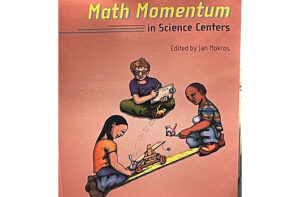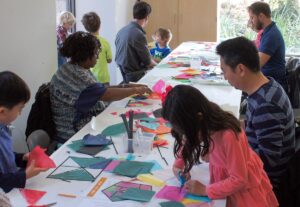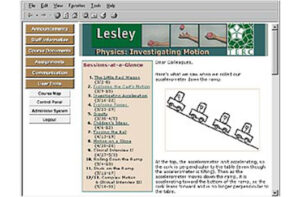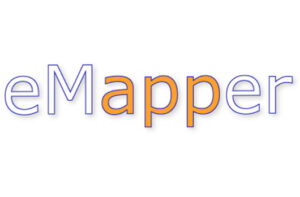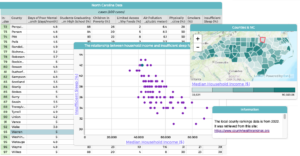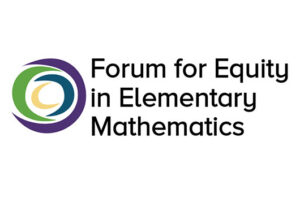All Included in Mathematics—Expansion & Dissemination
Expanded and disseminated the Project AIM professional development program that was designed to help teachers recognize, analyze, and aspire to implement high quality discourse in the mathematics classroom.
Lead Staff:
Judy StoreygardProject Staff:
Michael CassidyJim Hammerman
SummaryAll Included in Mathematics — Expansion and Dissemination (AIM-ED) was a four- year ITEST- SPrEaD project to expand, disseminate, and further understand the 40-hour, face-to-face mathematics professional development program for elementary teachers developed in Project AIM: All Included in Mathematics (DRL- 1020177 ).
AIM-ED took Project AIM from a Design and Development Research model to an Impact Study that examined the efficacy of the intervention (IES & NSF, 2013). It implemented the professional development in the new partner district, Johnston County Schools, with substantially less support from the project team to facilitators and used a quasi-experimental research design to test the effects of the professional development on both teacher and student learning. AIM-ED was designed to examine the hypothesis that, when implemented with fidelity, not only teachers learn from AIM-ED, but students in the classrooms of AIM-ED participating teachers also benefit.
Research ActivityTERC was the project’s external evaluator.
ImpactAIM-ED impacted mathematics classrooms, fostering the implementation of high-quality discourse and supporting learning for all students. By providing teachers with strategies that support the implementation of high-quality discourse that respect all students’ backgrounds, the expansions included in AIM-ED helped promote equitable mathematics instruction for all children across the nation.
Connected WorkStoreygard, J., & Malzahn, K. (2015). Sustaining professional development: Beyond one and done. Presented at the annual National Council of Supervisors of Mathematics conference, Boston, MA.
Alnizami, R., Thorp, A., & Sztajn, P. (2019). Change in discourse dimensions in elementary classrooms of professional development participants. In A. Redmond, & J. Cribbs (Eds.), Proceedings of the 46th annual meeting of the Research Council on Mathematics Learning (pp. 165 – 172). Charlotte, NC.
Dick, L., Sztajn, P., Foote White, T., & Heck, D. (2018). Investigating sociopedagogical norms: Teachers’ discussions about own and others’ instruction. Teaching and Teacher Education, 71, 297-307. doi: 10.1016/j.tate.2018.01.004
Show More
Show Less
Dick, L., Foote White, T., Trocki, A., Sztajn, P., Heck, D., & Herrema, K. (2016). Supporting sense making with mathematical bet lines. Teaching Children Mathematics, 22(9), 538-545.
Trocki, A., Taylor, C., Starling, T., Sztajn, P., & Heck, D. (2015). Launching a discourse-rich mathematics lesson. Teaching Children Mathematics, 21(5), 276-281.
All Included in Mathematics — Expansion and Dissemination (AIM-ED) was a four- year ITEST- SPrEaD project to expand, disseminate, and further understand the 40-hour, face-to-face mathematics professional development program for elementary teachers developed in Project AIM: All Included in Mathematics (DRL- 1020177 ).
AIM-ED took Project AIM from a Design and Development Research model to an Impact Study that examined the efficacy of the intervention (IES & NSF, 2013). It implemented the professional development in the new partner district, Johnston County Schools, with substantially less support from the project team to facilitators and used a quasi-experimental research design to test the effects of the professional development on both teacher and student learning. AIM-ED was designed to examine the hypothesis that, when implemented with fidelity, not only teachers learn from AIM-ED, but students in the classrooms of AIM-ED participating teachers also benefit.
TERC was the project’s external evaluator.
ImpactAIM-ED impacted mathematics classrooms, fostering the implementation of high-quality discourse and supporting learning for all students. By providing teachers with strategies that support the implementation of high-quality discourse that respect all students’ backgrounds, the expansions included in AIM-ED helped promote equitable mathematics instruction for all children across the nation.
Connected WorkStoreygard, J., & Malzahn, K. (2015). Sustaining professional development: Beyond one and done. Presented at the annual National Council of Supervisors of Mathematics conference, Boston, MA.
Alnizami, R., Thorp, A., & Sztajn, P. (2019). Change in discourse dimensions in elementary classrooms of professional development participants. In A. Redmond, & J. Cribbs (Eds.), Proceedings of the 46th annual meeting of the Research Council on Mathematics Learning (pp. 165 – 172). Charlotte, NC.
Dick, L., Sztajn, P., Foote White, T., & Heck, D. (2018). Investigating sociopedagogical norms: Teachers’ discussions about own and others’ instruction. Teaching and Teacher Education, 71, 297-307. doi: 10.1016/j.tate.2018.01.004
Show More
Show Less
Dick, L., Foote White, T., Trocki, A., Sztajn, P., Heck, D., & Herrema, K. (2016). Supporting sense making with mathematical bet lines. Teaching Children Mathematics, 22(9), 538-545.
Trocki, A., Taylor, C., Starling, T., Sztajn, P., & Heck, D. (2015). Launching a discourse-rich mathematics lesson. Teaching Children Mathematics, 21(5), 276-281.
AIM-ED impacted mathematics classrooms, fostering the implementation of high-quality discourse and supporting learning for all students. By providing teachers with strategies that support the implementation of high-quality discourse that respect all students’ backgrounds, the expansions included in AIM-ED helped promote equitable mathematics instruction for all children across the nation.
Storeygard, J., & Malzahn, K. (2015). Sustaining professional development: Beyond one and done. Presented at the annual National Council of Supervisors of Mathematics conference, Boston, MA.
Alnizami, R., Thorp, A., & Sztajn, P. (2019). Change in discourse dimensions in elementary classrooms of professional development participants. In A. Redmond, & J. Cribbs (Eds.), Proceedings of the 46th annual meeting of the Research Council on Mathematics Learning (pp. 165 – 172). Charlotte, NC.
Dick, L., Sztajn, P., Foote White, T., & Heck, D. (2018). Investigating sociopedagogical norms: Teachers’ discussions about own and others’ instruction. Teaching and Teacher Education, 71, 297-307. doi: 10.1016/j.tate.2018.01.004
Dick, L., Foote White, T., Trocki, A., Sztajn, P., Heck, D., & Herrema, K. (2016). Supporting sense making with mathematical bet lines. Teaching Children Mathematics, 22(9), 538-545.
Trocki, A., Taylor, C., Starling, T., Sztajn, P., & Heck, D. (2015). Launching a discourse-rich mathematics lesson. Teaching Children Mathematics, 21(5), 276-281.
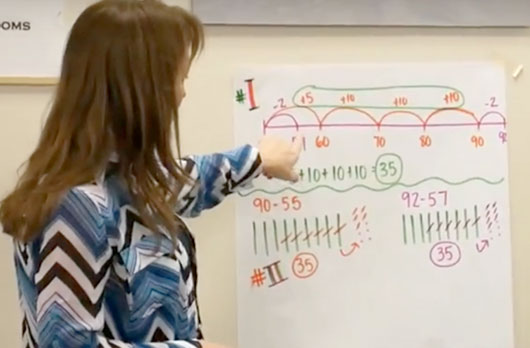
Funder:
National Science Foundation
Award Number:
DRL-1513104, DRL-1513155
NC State
Horizon Research Institute
2017 – 2020
Past ProjectThis project is no longer active. To see a list of current TERC projects, please click here.
Share This Page:

